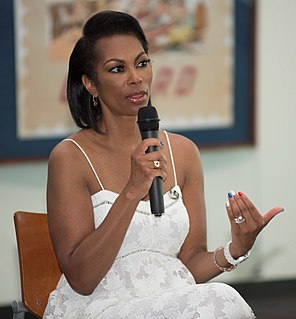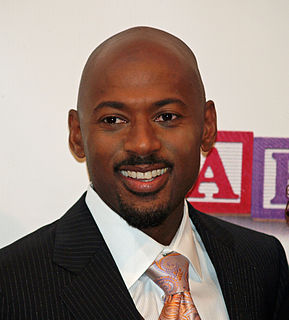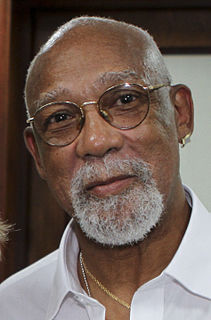A Quote by Harris Faulkner
When a black church is hit in South Carolina by someone with hate in their spirit, that's something that touches all of America, but as a person of color, I see that story even through a deeper prism of, 'Gosh, that takes us back to a time when black churches were targets in this country.'
Related Quotes
When I was in high school if you were black and lived in Detroit, and you wanted to drive down to Florida to go on vacation, you had to plan to drive all the way through, because you couldn't stop in a hotel all the way through South Carolina, North Carolina, and Georgia. We can't even fathom such a thing now, can we?
When someone asks me about violence, I just find it incredible, because what it means is that the person who’s asking that question has absolutely no idea what black people have gone through, what black people have experienced in this country, since the time the first black person was kidnapped from the shores of Africa.
Black History is enjoying the life of our ancestors who paved the way for every African-American. No matter what color you are, the history of Blacks affected everyone; that's why we should cherish and respect Black history. Black history changed America and is continuing to change and shape our country. Black history is about everyone coming together to better themselves and America. Black history is being comfortable in your own skin no matter what color you are. Black history makes me proud of where I came from and where I am going in life.
I have dear friends in South Carolina, folks who made my life there wonderful and meaningful. Two of my children were born there. South Carolina's governor awarded me the highest award for the arts in the state. I was inducted into the South Carolina Academy of Authors. I have lived and worked among the folks in Sumter, South Carolina, for so many years. South Carolina has been home, and to be honest, it was easier for me to define myself as a South Carolinian than even as an American.
Let's start with the black glove. We felt it necessary being the fact that the Olympic Games, for the first time ever [in 1968], had been televised worldwide. The second thing is the fact that it was in Technicolor. Never had the games been shown in color before.We wanted it to be understood that we were representing America, but we were representing Black America in particular, so that's why we put the black glove on.
I, however, like black. It is a color that makes me comfortable and the color with which I have the most experience. In the darkest darkness, all is black. In the deepest hole, all is black. In the terror of my Addicted mind, all is black. In the empty periods of my lost memory, all is black. I like black, goddammit, and I am going to give it its due.
The little platoon of the black community is the church. Our Christian faith is based on individual freedom from sin and the personal decision to find spiritual liberty that leads to a better life here on Earth and for eternity. On Sundays in America, the most conservative people can be found in black churches.
































